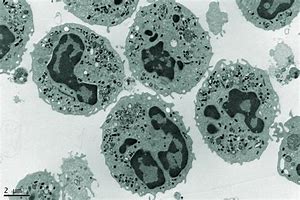Autolus announces license agreement with UCL Business PLC for clinical-stage product candidate in development for the treatment of B-cell malignancies
April 25, 2018
Source: autolus
 837
837
Autolus Limited, a clinical-stage biopharmaceutical company developing next-generation programmed T cell therapies, today announced the execution of a license agreement under which Autolus has acquired global rights from UCL Business plc (UCLB), the technology-transfer company of University College London (UCL), to develop and commercialize a novel CD19 chimeric antigen receptor (CAR) T cell therapy with novel targeting properties for the treatment of B cell malignancies.
The product candidate, which we have designated as AUTO1, is an investigational therapy in which a patient's T cells are genetically modified to express a novel CD19-specific CAR designed to reduce side effects related to cytokine release syndrome (CRS). CD19 is a protein expressed by B-cell lymphomas and leukaemias. CD19 CAR T cells have proven effective in treating leukaemia and lymphoma, with efficacy dependent on engraftment and expansion of CAR T cells. However, rapid activation and expansion of CAR T cells can result in CRS, which in some cases can be life-threatening, particularly for elderly patients and patients with higher tumour burden that have poor tolerance for toxicity. Furthermore, excessive activation of CAR T cells can lead to cell exhaustion and limit their persistence.
AUTO1 is currently the subject of two Phase 1 studies, one in paediatric acute lymphoblastic leukaemia (ALL) and the other in adult ALL*. AUTO1 has been designed to recognise CD19 with a fast-off binding kinetic, which allows CAR T cells to efficiently recognize cancer cells, inject cytotoxic proteins to initiate the natural self-destruction process present in all human cells and then rapidly dissociate from them in order to engage the next cancer cell - a process also known as serial killing. We believe that avoiding prolonged residence on targeted cells may minimize excessive activation of CAR- T cells and reduce toxicity and CAR T cell exhaustion. In a UCL Phase 1 clinical study (CARPALL) in paediatric ALL patients evaluating the properties of AUTO1, investigators observed levels of efficacy similar to those in other reported studies, without observing grade 3 or 4 CRS and without the need to administer immunosuppressive drugs. Data from the CARPALL study were presented at the 2017 Annual Meeting of the American Society of Hematology**.
Dr Martin Pule, Chief Scientific Officer of Autolus Limited and Senior Lecturer in Haematology at UCL, commented:
“Current CARs in the clinic are designed with high affinity binders that can engage the CD19 target for an extended period of time. This can lead to excessive T cell activation and cytokine release, as well as exhaustion of the T cell.We developed a CD19 CAR that is designed to bind to its target with a fast on-rate but then releases quickly, which is more similar to naturally occurring T cell activity. The initial clinical data supports the premise that this kinetic profile reduces toxicity and increases CAR T cell engraftment.”
Dr Christian Itin, Chief Executive Officer of Autolus Limited, added:
“This licensing arrangement represents an exciting opportunity for Autolus as we continue to expand our broad pipeline of clinical-stage T cell programs, with clinical trials currently ongoing for five programmes in six indications. With AUTO1, we are collaborating with UCLB in an ongoing trial in adult ALL patients and also expect to leverage the improved safety profile of the CD19 binder in future generations of our programmed T cell therapies for the treatment of patients with B cell malignancies.”
Cengiz Tarhan, Managing Director of UCLB, said:
“The development of this product candidate represents the culmination of several years of research led by Martin Pule and his collaborators, drawing on funding from multiple government and charitable sources. UCLB is delighted to be able to partner with Autolus to support the continued development of this promising approach.”By Ddu
Read more on
- Disposable Medical Products that Keep Your Medical Facility Clean and Sterile March 31, 2022
- 10 Triumphant Drug Launches Of The Decade August 26, 2021
- Ultrasonic Nebulizer Market Views September 6, 2018
- 4 Best-Selling Digital Thermometers on Drugdu.com in 2018 September 5, 2018
- Don’t Miss These Tips before Your Cardiac Monitor Purchase September 5, 2018
your submission has already been received.
OK
Subscribe
Please enter a valid Email address!
Submit
The most relevant industry news & insight will be sent to you every two weeks.




